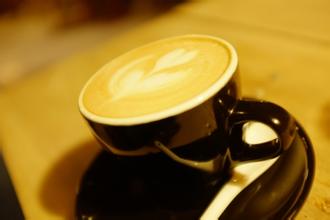Arabica Coffee Flavor description Grinding characteristics simple planting situation of Fine Coffee in Variety producing area

Robusta coffee beans have a unique aroma and bitter taste, and the content of caffeine is much higher than that of Arabica. To make a cup of pure espresso, you need to mix a certain proportion of high-quality robusta beans on the basis of Arabica beans. Because among the many choices of coffee beans, high-quality robusta coffee beans can make Italian coffee show its due personality, increase the taste of coffee, make the coffee strong, at the same time increase the bitterness, and make the golden oil of coffee more attractive.
Arabica? Coffee has a varied and broad potential flavor. Arabica coffee produced in different regions, different elevations and different climates usually has its own characteristics and can show a completely different flavor. ? Arabica? When coffee is not roasted, it smells like grass. After proper roasting, it shows. Fruity? (medium and shallow baking) and? Caramel sweet? (deep baking), generally speaking, has a better aroma and flavor than Robota beans. ? Robusta? Coffee is usually mundane, dull, and pungent, and because the vast majority of Robusta coffee in the world is grown in low altitude areas (India has planted a small number of high-altitude, high-quality, washed robusta coffee beans, its price is higher than most Arabica coffee beans) the flavor produced by different regions and climates does not vary much, and lacks personality. When unbaked, it smells like raw peanuts, and cheap robusta coffee beans usually smell like peanuts when roasted. Mai Tsai tea? (medium baking) and? Rubber tire smell? (deep baking), it is difficult to show the fine flavor of Arabica? The planting conditions of coffee are harsh, requiring higher elevations (above 2000 meters above sea level), fertile soil fertility, adequate moisture, proper sunshine conditions and shade. Arabica? Coffee tree species have poor ability to resist diseases and insect pests and are easy to be damaged. In addition, the annual output of coffee trees per unit area is also relatively low. At the moment? Arabica? Growing coffee accounts for 75% of the world's coffee production, in these? Arabica? Of the coffee output, only 10% of the quality of Arabica coffee can be classified. Boutique coffee (Specialty coffee)? ? Robusta? Coffee is commonly known as? Thick beans can be planted at low elevations (200 to 800 meters above sea level). They are resistant to diseases and insect pests and are not vulnerable to agricultural diseases. the annual output of coffee trees per unit area is higher, and they are harvested in large quantities by machine. generally speaking, the production cost is much lower than that of Arabica coffee.
Although both are widely cultivated, there are significant differences in Arabica Canephora Robusta. Beans are different, plants are different, and then, their scope of use is also different. Arabica coffee has a rich and delicate taste, strong smell, high acidity and slippery texture: it is not easy to be bitter; caffeine is lower than Robusta coffee. Its excellent flavor and aroma make it the only coffee that can be drunk directly. The world-famous Blue Mountain Coffee uses Arabica coffee beans.
Important Notice :
前街咖啡 FrontStreet Coffee has moved to new addredd:
FrontStreet Coffee Address: 315,Donghua East Road,GuangZhou
Tel:020 38364473
- Prev

Arabica Coffee Fine Coffee beans Grinding degree, Flavor, Flavor, Flavor description
Arabica (Arabica) and? Robusta is two different coffee varieties, which currently account for the vast majority of coffee bean production in the world. Arabica seed? Coffee and? Robusta? There are three main differences in coffee: 1. Differences in planting conditions. 2. The flavor and characteristics are different. 3. The difference between market price and use. Planting condition difference Arabica? Coffee
- Next

Arabica Coffee Variety Variety Quality Flavor Description Processing Method Taste Grindness Introduction
Arabica is a large shrub with oval, dark green leaves and oval fruits. It usually has two slightly flat beans. The bean body is small and round, the front is long oval, the middle crack is narrow and curved in S shape, and the arc shape of the back of the bean is relatively flat. Caffeine content is about 1% 1.7% Arabica coffee tree, one of the most important coffee trees in the world. The Arabica species (
Related
- Detailed explanation of Jadeite planting Land in Panamanian Jadeite Manor introduction to the grading system of Jadeite competitive bidding, Red bid, Green bid and Rose Summer
- Story of Coffee planting in Brenka region of Costa Rica Stonehenge Manor anaerobic heavy honey treatment of flavor mouth
- What's on the barrel of Blue Mountain Coffee beans?
- Can American coffee also pull flowers? How to use hot American style to pull out a good-looking pattern?
- Can you make a cold extract with coffee beans? What is the right proportion for cold-extracted coffee formula?
- Indonesian PWN Gold Mandrine Coffee Origin Features Flavor How to Chong? Mandolin coffee is American.
- A brief introduction to the flavor characteristics of Brazilian yellow bourbon coffee beans
- What is the effect of different water quality on the flavor of cold-extracted coffee? What kind of water is best for brewing coffee?
- Why do you think of Rose Summer whenever you mention Panamanian coffee?
- Introduction to the characteristics of authentic blue mountain coffee bean producing areas? What is the CIB Coffee Authority in Jamaica?

